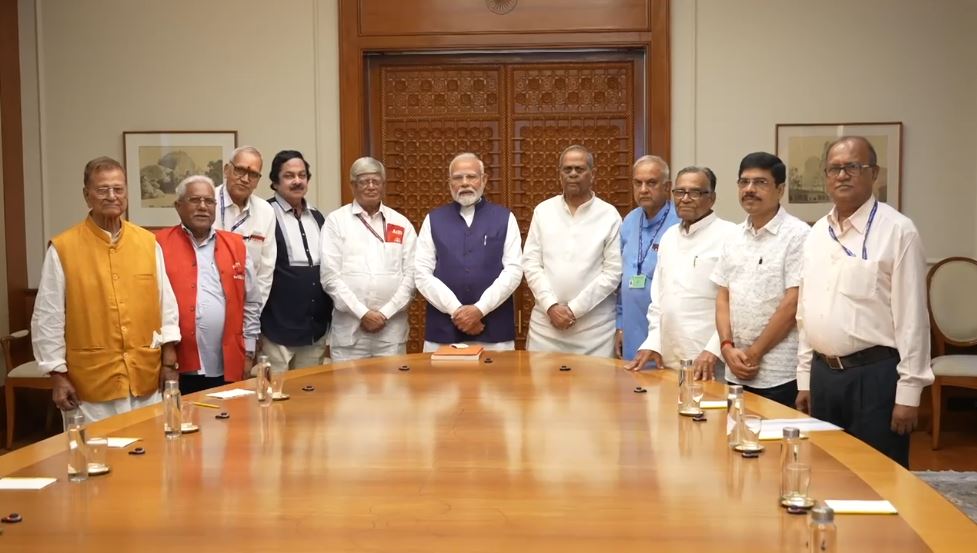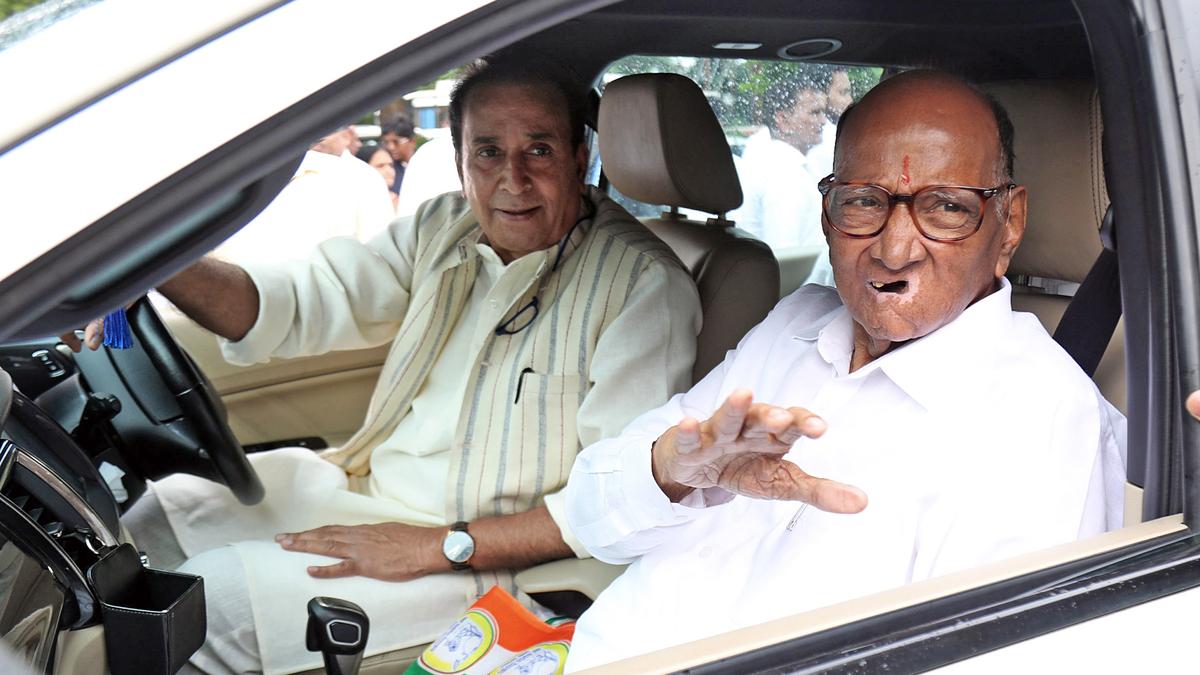Narendra Modi: A Short Profile on India's Prime Minister

- Updated Monday Jun 03 2024
Narendra Modi, born on September 17, 1950, in Vadnagar, Gujarat, is an influential Indian politician serving as the Prime Minister of India since May 26, 2014. As a prominent leader of the Bharatiya Janata Party (BJP) and a member of the Rashtriya Swayamsevak Sangh (RSS), Modi's political journey is marked by significant achievements and controversies.
Early Life and Political Rise:
Modi was born into a modest family; his father was a street merchant. He completed his schooling in Vadnagar and was inclined towards politics from a young age, joining the RSS at the age of eight. This early association with the RSS laid the foundation for his political ideology and career. Modi's political journey began in earnest in the early 1980s when he joined the BJP. He quickly rose through the ranks, known for his organizational skills and dedication.
Chief Minister of Gujarat:
Modi's significant political breakthrough came in 2001 when he was appointed the Chief Minister of Gujarat. He served in this role until 2014, overseeing extensive economic growth and industrial development in the state. Under his leadership, Gujarat became known for its business-friendly environment and infrastructure development. However, his tenure was marred by the 2002 Gujarat riots, a period of intense communal violence. Modi faced severe criticism for his handling of the riots, with allegations of state complicity. Despite this, he was repeatedly re-elected and continued to lead Gujarat towards rapid development.
Prime Minister of India:
In 2014, Modi led the BJP to a historic victory in the general elections, securing a clear majority in the Lok Sabha. His campaign, which promised economic reform, development, and a strong stance against corruption, resonated with many Indians. Modi's tenure as Prime Minister has been characterized by ambitious initiatives and bold policy decisions.
Key Initiatives and Policies:
1. Economic Reforms: Modi's government launched several economic initiatives, including the Make in India campaign to boost manufacturing, the Digital India initiative to promote digital infrastructure, and the Goods and Services Tax (GST) to streamline the tax system.
2. Infrastructure Development: His administration prioritized infrastructure projects, such as the development of highways, smart cities, and the Bharatmala project for road connectivity.
3. Swachh Bharat Abhiyan: Launched in 2014, this nationwide cleanliness campaign aimed to eliminate open defecation and improve solid waste management.
4. Demonetization: In 2016, Modi announced the demonetization of high-denomination currency notes, aiming to combat black money, counterfeit currency, and corruption. The move had mixed reactions and significant economic implications.
5. Foreign Policy: Modi has been active on the international stage, strengthening ties with global powers, promoting India’s role in regional and international organizations, and focusing on the Indian diaspora.
6. Welfare Schemes: His government introduced several social welfare schemes, such as the Pradhan Mantri Jan Dhan Yojana for financial inclusion, the Pradhan Mantri Ujjwala Yojana for providing LPG connections to low-income households, and the Ayushman Bharat scheme for healthcare.
Controversies and Criticisms:
Despite his achievements, Modi's tenure has not been without controversies. Critics accuse him of promoting a Hindu nationalist agenda and undermining India's secular fabric. His handling of the COVID-19 pandemic, particularly during the second wave, drew significant criticism for inadequate healthcare preparedness and response. Additionally, issues such as rising unemployment, agrarian distress, and allegations of curbing dissent and press freedom have been points of contention.
Conclusion:
Narendra Modi remains a polarizing figure in Indian politics, admired by many for his vision and leadership but also criticized for his polarizing policies and handling of certain crises. As he continues to shape India's future, his legacy will be assessed by both his contributions to India's development and the controversies that have marked his tenure.
Share News
Please Login to place a comment
Login Now
-
LATEST
-
POPULAR
Half of Goa uses online portal, saves trips to government of...
Nov 23 2024





















